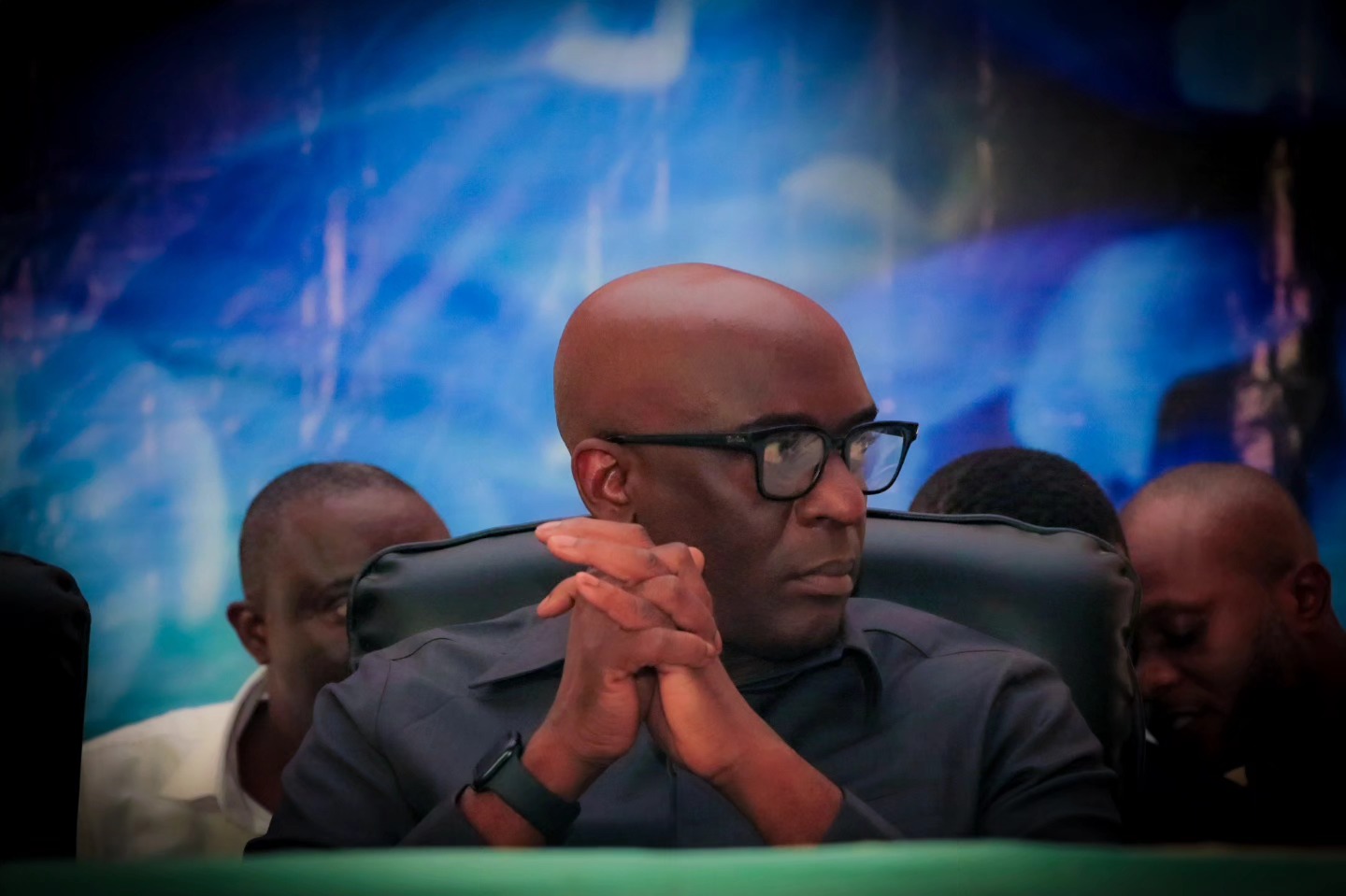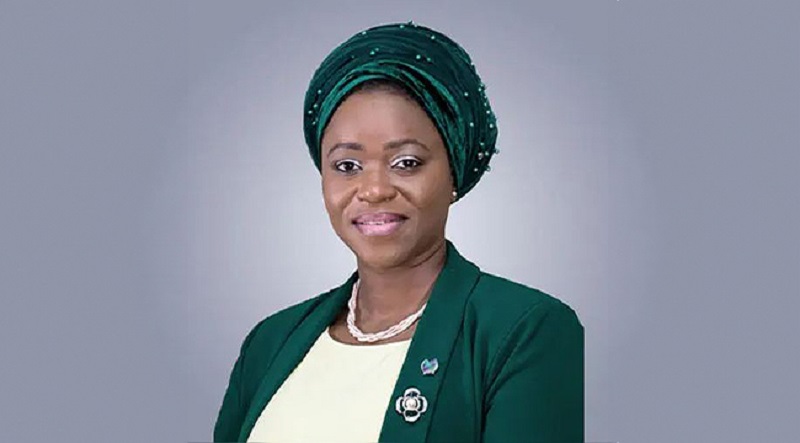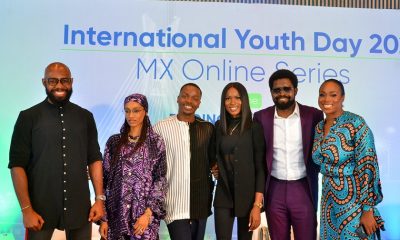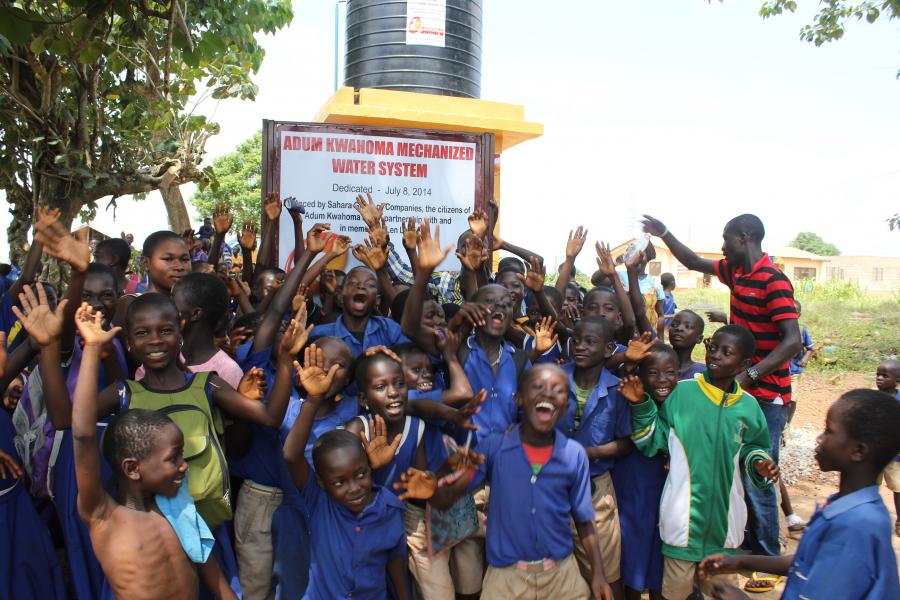Feature/OPED
International Youth Day 2022 and Nigerian Youth Ordeals
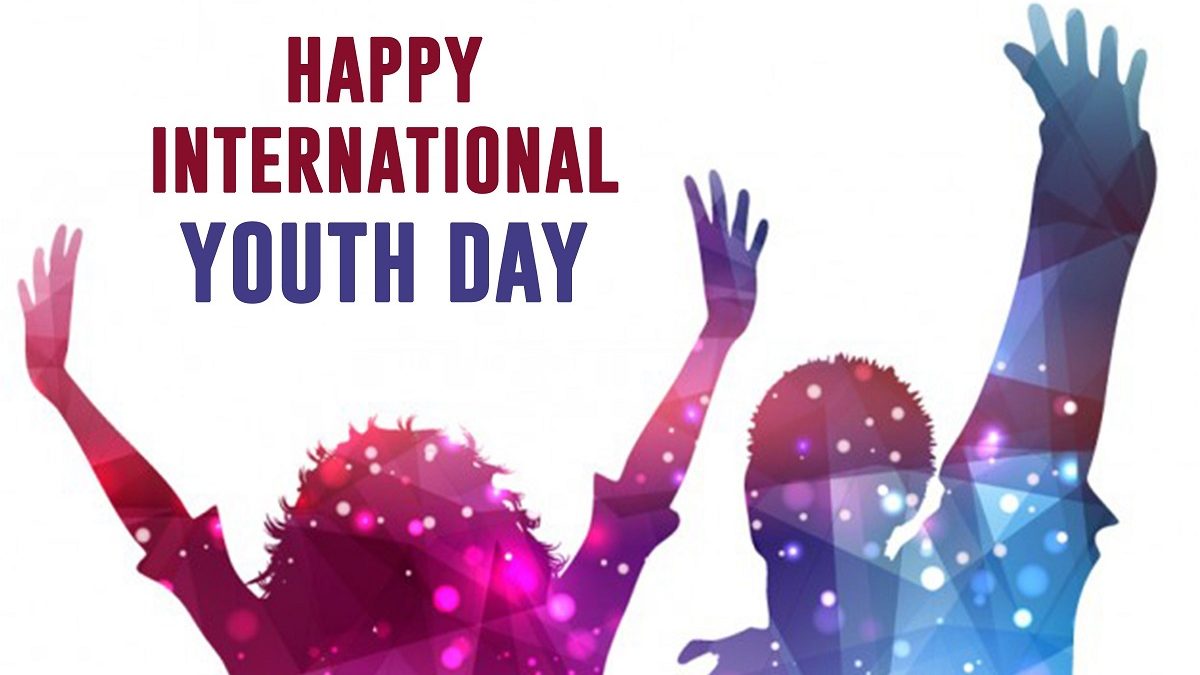
By Jerome-Mario Chijioke Utomi
Friday, August 12, 2022, is a very important date in the global calendar. It is a day that the global community sets aside to celebrate this year’s International Youth Day. The important purpose of this annual celebration, going to information from the United Nations (UN), is to among other things raise voices against any injustice or discrimination happening in the world against the youth. Again, going by available records, International Youth Day was recognized by the United Nations when they passed a resolution towards creating it in 1999 at the United Nations General Assembly. This day came into existence with the recommendation of the World Conference of Ministers and they are responsible for 12th August being declared as International Youth Day.
Essentially, there was a need for this day because a very large amount of youth in the world are struggling with issues related to physical or mental health, education and employment and thus all these issues need to be addressed. When the government or society does not focus on the proper development of the youth, they tend to become rebellious and many times they can opt for the choices which are neither good for their development nor for their country.
Certainly, the global community uses workshops, concerts, conferences, cultural events, seminars and meetings involving national and local government officials and youth organizations to celebrate the day while recognizing the contributions of young people and volunteers who are working towards the betterment of the society and are raising important issues that need more attention of the society, there are, however, painful signs that the situation back here in the country says instead of celebrating, the average Nigerian youth is currently in a state of frustration.
From commentaries, the frustration of these young victims of our nation’s socioeconomic challenge was not only fuelled by the gap between the extravagant promises made in the past by the government without fulfilment but predicated on the ills that flow from bad leadership which daily manifests in the tradition of leading without recourse to transparency and accountability. And as a consequence, ‘stifles development, siphons all scarce resources that could improve infrastructure, bolster education systems and strengthen public health and stack the deck against the poor masses.
To explain this position, a recent report from the National Bureau of Statistics (NBS), reveals that in the second-quarter Q2:2020 unemployment rate among young people (15-34 years old) was 34.9%, up from 29.7%, while the rate of underemployment for the same age group rose to 28.2% from 25.7% in Q3, 2018. These rates were the highest when compared to other age groupings. Nigeria’s youth population eligible to work is about 40 million out of which only 14.7 million are fully employed and another 11.2 million are unemployed.
For a better understanding of where this piece is headed, youth in every society, says a study report, has the potential to stimulate economic growth, social progress and our all-national development. The strategic role of youths in the development of different societies of the world such as Cuba, Libya, China, Russia and Israel is obvious.
Youth unemployment is potentially dangerous as it sends a signal to all segments of Nigerian society. Here in Nigeria, the rate of youth unemployment is high, even during the period of economic normalcy i.e. the oil boom of the 1970s (6.2%); 1980s (9.8%) and 1990s (11.5%). Youth unemployment, therefore, is not a recent phenomenon. But if what happened in the 1980s/90s was a challenge of sorts, what is happening presently, going by the latest report by the National Bureau of Statistics (NBS), is a challenge. This and many other concerns have expectedly caused divided opinion and a proliferation of solutions.
From the above, it is obvious that ‘we are in a dire state of strait because unemployment has diverse implications. Security-wise, the large unemployed youth population is a threat to the security of the few that are employed. Any transformation agenda that does not have job creation at the centre of its programme will take us nowhere.’
From unemployment challenges to the poor education sector, it is accurately documented that many Nigerian children are out of school not because they are not willing to be educated but because the cost of education is beyond the reach of their parents. The public schools are short of teachers with dilapidated buildings. Private schools on the other hand where the environment is conducive to learning are cost-intensive and out of reach of so many students and their parents.
In like manner, the Academic Staff Union of Universities (ASUU) has been on strike since February 14, 2022. The group embarked on such industrial action to protest the government’s inability to implement their demands on salaries and allowances of lecturers, and improved funding for universities.
The implication is that for the past six months and counting, these youths have been idling away at home and the Federal Government has not considered the damage such failures impose on this future strength of the nation that their generation will provide the next leaders.
Now, looking at the above painful account, and considering the fact that the nation Nigeria races to the 2023 general election, the question(s) may be asked; how far can the youth go in a nation where tribal loyalty is stronger than our common sense of nationhood? Can the youth effectively guard their courage? How far can the youths go as change agents in a country where excruciating poverty and starvation continue to drive more people into the ranks of beggars, whose desperate struggle for bread renders them insensible to all feelings of decency and self-respect? Or in a society where the majority of the youths can easily be induced to work across purpose and in a political space where a high density of the youth’s population resides in various villages with no access to information or livelihood? Can they truly create any impact? Or remain united for a very long time.
While the answer(s) to these questions is being awaited, the truth must be told to the effect that to make this year’s world youth day rewarding as well as change this trend, and achieve the objective of engaging youth in formal political mechanisms, increase the fairness of political processes by reducing democratic deficits, contributes to better and more sustainable policies which have symbolic importance that can further contribute to restoring trust in public institutions, especially among youth, there are inescapable actions that the youths must take, there are steps/action plans that Nigerian youths must execute.
Separate from constructively and sustainably engaging the Federal Government, It will not in any way be described as out of place if the youths harness their population advantage and their demographic dividends to form a formidable opposition that holds the government accountable or better still seek political offices come 2023 general election.
Supporting this position is Section 39(1) of the 1999 Constitution adopted from Article 19 of the Universal Declaration of Human Rights (UN, 1948) which gives everyone the right to freedom of opinion and expression. The youth must also access the power of the press as Section 22 stipulates that “the press, radio, television and other agencies of the mass media shall, at all times, be free to upload the fundamental objectives contained in this Chapter [Chapter IV: Fundamental Rights] and uphold the responsibility and accountability of the Government to the people”, which has been emboldened by the Freedom of Information Act, 2011.
It is important that Nigerian youths continue to speak up against violations of human rights, suppression of free speech and freedom of the press. Unlike their elders, youths must not initiate, encourage or spread false, mischievous or divisive information capable, or with outright intent, of misleading the populace and disrupting societal harmony and peace. Within the ambience of the law, they must speak up with facts against any wrongdoing or oppression by the government or fellow citizens capable of endangering sustainable democracy and the effective delivery of good governance.
They (youths) should view as evil the argument by political deconstructionists that Nigerian youths must face difficulties as there is no nation where each has his/her own job and house, and where all children receive as much education as their minds can absorb. This claim is not only ‘rationally inexplicable but morally unjustifiable. It is a fact that government lacks the capacity to fix socioeconomic challenges alone. But any government with goodwill and sincerity to save and serve the people must develop creative and innovative channels to promote sustained and inclusive economic growth, social development, environmental protection and job creation.
Also, Nigerians are in agreement that the law is the supreme instrument of the state which must be respected and no one is above the law. This particular fact, if well understood, will assist the youths to comprehend that as citizens, they are constitutionally eligible to vote and be voted for.
Utomi Jerome-Mario is the Programme Coordinator (Media and Public Policy), Social and Economic Justice Advocacy (SEJA), a Lagos-based Non-Governmental Organization (NGO). He can be reached via Je*********@***oo.com/08032725374
Feature/OPED
Brent’s Jump Collides with CBN Easing, Exposes Policy-lag Arbitrage
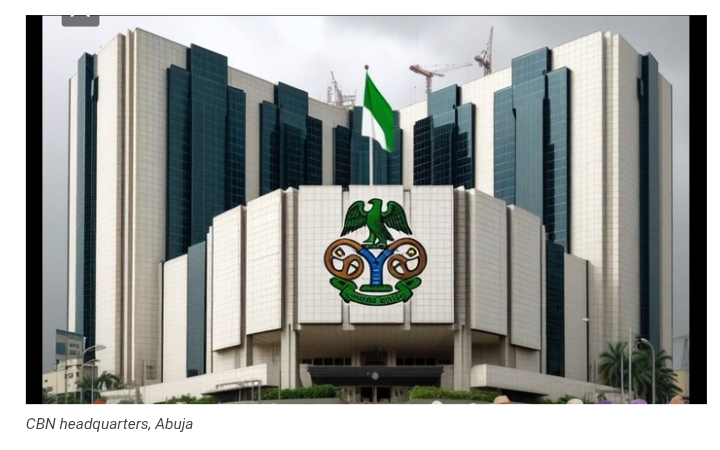
Nigeria is entering a timing-sensitive macro set-up as the oil complex reprices disruption risk and the US dollar firms. Brent moved violently this week, settling at $77.74 on 02 March, up 6.68% on the day, after trading as high as $82.37 before settling around $78.07 on 3 March. For Nigeria, the immediate hook is the overlap with domestic policy: the Central Bank of Nigeria (CBN) has just cut its Monetary Policy Rate (MPR) by 50 basis points to 26.50%, whilst headline inflation is still 15.10% year on year in January.
“Investors often talk about Nigeria as an oil story, but the market response is frequently a timing story,” said David Barrett, Chief Executive Officer, EBC Financial Group (UK) Ltd. “When the pass-through clock runs ahead of the policy clock, inflation risk, and United States Dollar (USD) demand can show up before any oil benefit is felt in day-to-day liquidity.”
Policy and Pricing Regime Shift: One Shock, Different Clocks
EBC Financial Group (“EBC”) frames Nigeria’s current set-up as “policy-lag arbitrage”: the same external energy shock can hit domestic costs, FX liquidity, and monetary transmission on different timelines. A risk premium that begins in crude can quickly show up in delivered costs through freight and insurance, and EBC notes that downstream pressure has been visible in refined markets, with jet fuel and diesel cash premiums hitting multi-year highs.
Market Impact: Oil Support is Conditional, Pass-through is Not
EBC points out that higher crude is not automatically supportive of the naira in the short run because “oil buffer” depends on how quickly external receipts translate into market-clearing USD liquidity. Recent price action illustrates the sensitivity: the naira was quoted at 1,344 per dollar on the official market on 19 February, compared with 1,357 a week earlier, whilst street trading was cited around 1,385.
At the same time, Nigeria’s inflation channel can move quickly even during disinflation: headline inflation eased to 15.10% in January from 15.15% in December, and food inflation slowed to 8.89% from 10.84%, but energy-led transport and logistics costs can reintroduce pressure if the risk premium persists. EBC also points to a broader Nigeria-specific reality: the economy grew 4.07% year on year in 4Q25, with the oil sector expanding 6.79% and non-oil 3.99%, whilst average daily oil production slipped to 1.58 million bpd from 1.64 million bpd in 3Q25. That mix supports external-balance potential, but it also underscores why the domestic liquidity benefit can arrive with a lag.
Nigeria’s Buffer Looks Stronger, but It Does Not Eliminate Sequencing Risk
EBC sees that near-term external resilience is improving. The CBN Governor said gross external reserves rose to USD 50.45 billion as of 16 February 2026, equivalent to 9.68 months of import cover for goods and services. Even so, EBC views the market’s focus as pragmatic: in a risk-off tape, investors tend to price the order of transmission, not the eventual balance-of-payments benefit.
In the near term, EBC expects attention to rotate to scheduled energy and policy signposts that can confirm whether the current repricing is a short, violent adjustment or a more durable regime shift, including the U.S. Energy Information Administration (EIA) Short-Term Energy Outlook (10 March 2026), OPEC’s Monthly Oil Market Report (11 March 2026), and the U.S. Federal Reserve meeting (17 to 18 March 2026). On the domestic calendar, the CBN’s published schedule points to the next Monetary Policy Committee meeting on 19 to 20 May 2026.
Risk Frame: The Market Prices the Lag, Not the Headline
EBC cautions that outcomes are asymmetric. A rapid de-escalation could compress the crude risk premium quickly, but once freight, insurance, and hedging behaviour adjust, second-round effects can linger through inflation uncertainty and a more persistent USD bid.
“Oil can act as a shock absorber for Nigeria, but only when the liquidity channel is working,” Barrett added. “If USD conditions tighten first and domestic pass-through accelerates, the market prices the lag, not the headline oil price.”
Brent remains an anchor instrument for tracking this timing risk because it links energy-led inflation expectations, USD liquidity, and emerging-market risk appetite in one market. EBC Commodities offering provides access to Brent Crude Spot (XBRUSD) via its trading platform for following energy-driven macro volatility through a single instrument.
Feature/OPED
Gen Alpha: Africa’s Digital Architects, Not Your Target Audience

By Emma Kendrick Cox
This year, the eldest Gen Alpha turns 16.
That means they aren’t just the future of our work anymore. They are officially calling for a seat at the table, and they’ve brought their own chairs. And if you’re still calling this generation born between 2010 and 2025 the iPad generation, then I hate to break it to you, but you’re already obsolete. To the uninitiated, they look like a screen-addicted mystery. To those of us paying attention, they are the most sophisticated, commercially potent, and culturally fluent architects Africa has ever seen.
Why? Because Alphas were not born alongside the internet. They were born inside it. And by 2030, Africa will be home to one in every three Gen Alphas on the planet.
QWERTY the Dinosaur
We are witnessing the rise of a generation that writes via Siri and speech-to-text before they can even hold a pencil. With 63% of these kids navigating smartphones by age five, they don’t see a QWERTY keyboard as a tool. They see it as a speed bump, the long route, an inefficient use of their bandwidth. They don’t need to learn how to use tech because they were born with the ability to command their entire environment with a voice note or a swipe.
They are platform agnostic by instinct. They don’t see boundaries between devices. They’ll migrate from an Android phone to a Smart TV to an iPhone without breaking their stride. To them, the hardware is invisible…it’s the experience that matters.
They recognise brand identities long before they know the alphabet. I share a home with a peak Gen Alpha, age six and a half (don’t I dare forget that half). When she hears the ding-ding-ding-ding-ding of South Africa’s largest bank, Capitec’s POS machine, she calls it out instantly: “Mum! Someone just paid with Capitec!” It suddenly gives a whole new meaning to the theory of brand recall, in a case like this, extending it into a mental map of the financial world drawn long before Grade 2.
And it ultimately lands on this: This generation doesn’t want to just view your brand from behind a glass screen. They want to touch it, hear it, inhabit it, and remix it. If they can’t live inside your world, you’re literally just static.
The Uno Reverse card
Unlike any generation we’ve seen to date, households from Lagos to Joburg and beyond now see Alphas hold the ultimate Uno Reverse card on purchasing power. With 80% of parents admitting their kids dictate what the family buys, these Alphas are the unofficial CTOs and Procurement Officers of the home:
-
The hardware veto: Parents pay the bill, but Alphas pick the ISP based on Roblox latency and YouTube 4K buffers.
-
The Urban/Rural bridge: In the cities, they’re barking orders at Alexa. In rural areas, they are the ones translating tech for their families and narrowing the digital divide from the inside out.
-
The death of passive: I’ll fall on my sword when I say that with this generation, the word consumer is dead. It implies they just sit there and take what you give them, when, on the contrary, it is the total opposite. Alphas are Architectural. They are not going to buy your product unless they can co-author the experience from end to end.
As this generation creeps closer and closer to our bullseye, the team here at Irvine Partners has stopped looking at Gen Alpha as a demographic and started seeing them as the new infrastructure of the African market. They are mega-precise, fast, and surgically informed.
Believe me when I say they’ve already moved into your industry and started knocking down the walls. The only question is: are you building something they actually want to live in, or are you just a FaceTime call they are about to decline?
Pay attention. Big moves are coming. The architects are here.
Emma Kendrick Cox is an Executive Creative Director at Irvine Partners
Feature/OPED
Why Digital Trust Matters: Secure, Responsible AI for African SMEs?

By Kehinde Ogundare
For years, security for SMEs across sub-Saharan Africa meant metal grilles and alarm systems. Today, the most significant risks are invisible and growing faster than most businesses realise.
Artificial Intelligence has quietly embedded itself into everyday operations. The chatbot responding to customers at midnight, the system forecasting inventory requirements, and the software identifying unusual transactions are no longer experimental technologies. They are becoming standard features of modern business tools.
Last month’s observance of Safer Internet Day on February 10, themed ‘Smart tech, safe choices’, marked a pivotal moment. As AI adoption accelerates, the conversation must shift from whether businesses should use AI to how they deploy it responsibly. For SMEs across Africa, digital trust is no longer a technical consideration. It is a strategic business imperative.
The evolving threat landscape
Cybersecurity threats facing sub-Saharan African SMEs have moved well beyond basic phishing emails. Globally, cybercrime costs are projected to reach $10.5 trillion this year, fuelled by generative AI and increasingly sophisticated social engineering techniques. Ransomware attacks now paralyse entire operations, while other threats quietly extract sensitive customer data over extended periods.
The regional impact is equally significant. More than 70% of South African SMEs report experiencing at least one attempted cyberattack, and Nigeria faces an average of 3,759 cyberattacks per week on its businesses. Kenya recorded 2.54 billion cyber threat incidents in the first quarter of 2025 alone, whilst Africa loses approximately 10% of its GDP to cyberattacks annually.
The hidden risk of fragmentation
A common but often overlooked vulnerability lies in digital fragmentation.
In the early stages of growth, SMEs understandably prioritise affordability and agility. Over time, this can result in a patchwork of disconnected applications, each with separate logins, security standards, and privacy policies. What begins as flexibility can involve operational complexity.
According to IBM Security’s Cost of a Data Breach Report, companies with highly fragmented security environments experienced average breach costs of $4.88 million in 2024.
Fragmented systems create blind spots; each additional data transfer between applications increases exposure. Inconsistent security protocols make governance harder to enforce. Limited visibility reduces the ability to detect anomalies early. In practical terms, complexity increases risk.
Privacy-first AI as a competitive differentiator
As AI capabilities become embedded in business software, SMEs face a choice about how they approach these powerful tools. The risks are not merely theoretical.
Consumers across Africa are becoming more aware of data rights and are willing to walk away from businesses that cannot demonstrate trustworthiness. According to KPMG’s Trust in AI report, approximately 70% of adults do not trust companies to use AI responsibly, and 81% expect misuse. Meanwhile, studies also show that 71% of consumers would stop doing business with a company that mishandles information.
Trust, once lost, is difficult to rebuild. In the digital age, a single data leak can destroy a reputation that took ten years to build. When customers share their payment details or purchase history, they extend trust. How you handle that trust, particularly when AI processes their data, determines whether they return or take their business elsewhere.
Privacy-first, responsible AI design means building intelligence into business systems with data protection, transparency and ethical use embedded from the outset. It involves collecting only necessary information, storing it securely, being transparent about how AI makes decisions, and ensuring algorithms work without compromising customer privacy. For SMEs, this might mean choosing inventory software where predictive AI runs on your own data without sending it externally, or customer service platforms that analyse patterns without exposing individual records. When AI is built responsibly into unified platforms, it becomes a competitive advantage: you gain operational efficiency whilst demonstrating that customer data is protected, not exploited.
Unified platforms and operational resilience
The solution lies in rethinking digital infrastructure. Rather than accumulating disparate tools, businesses need unified platforms that integrate core functions whilst maintaining consistent security protocols.
A unified approach means choosing cloud-based platforms where functions share common security standards, and data flows seamlessly. For a manufacturing SME, this means inventory management, order processing and financial reporting operate within a single security framework.
When everything operates cohesively, security gaps diminish, and the attack surface shrinks. And the benefits extend beyond risk reduction: employees spend less time on administrative friction, customer data stays consistent, and platforms enable secure collaboration without traditional infrastructure costs.
Safer Internet Day reminds us that the digital world requires active stewardship. For SMEs across the African continent who are navigating complex threats whilst harnessing AI’s potential, digital trust is foundational to sustainable growth. Security, privacy and responsible AI are essential characteristics of any technology infrastructure worth building upon. Businesses that embrace unified, privacy-first platforms will be more resilient against cyber threats and better positioned to earn and maintain trust. In a market where trust is currency, that advantage is everything.
Kehinde Ogundare is the Country Head for Zoho Nigeria
-

 Feature/OPED6 years ago
Feature/OPED6 years agoDavos was Different this year
-
Travel/Tourism10 years ago
Lagos Seals Western Lodge Hotel In Ikorodu
-

 Showbiz3 years ago
Showbiz3 years agoEstranged Lover Releases Videos of Empress Njamah Bathing
-

 Banking8 years ago
Banking8 years agoSort Codes of GTBank Branches in Nigeria
-

 Economy3 years ago
Economy3 years agoSubsidy Removal: CNG at N130 Per Litre Cheaper Than Petrol—IPMAN
-

 Banking3 years ago
Banking3 years agoSort Codes of UBA Branches in Nigeria
-

 Banking3 years ago
Banking3 years agoFirst Bank Announces Planned Downtime
-

 Sports3 years ago
Sports3 years agoHighest Paid Nigerian Footballer – How Much Do Nigerian Footballers Earn


